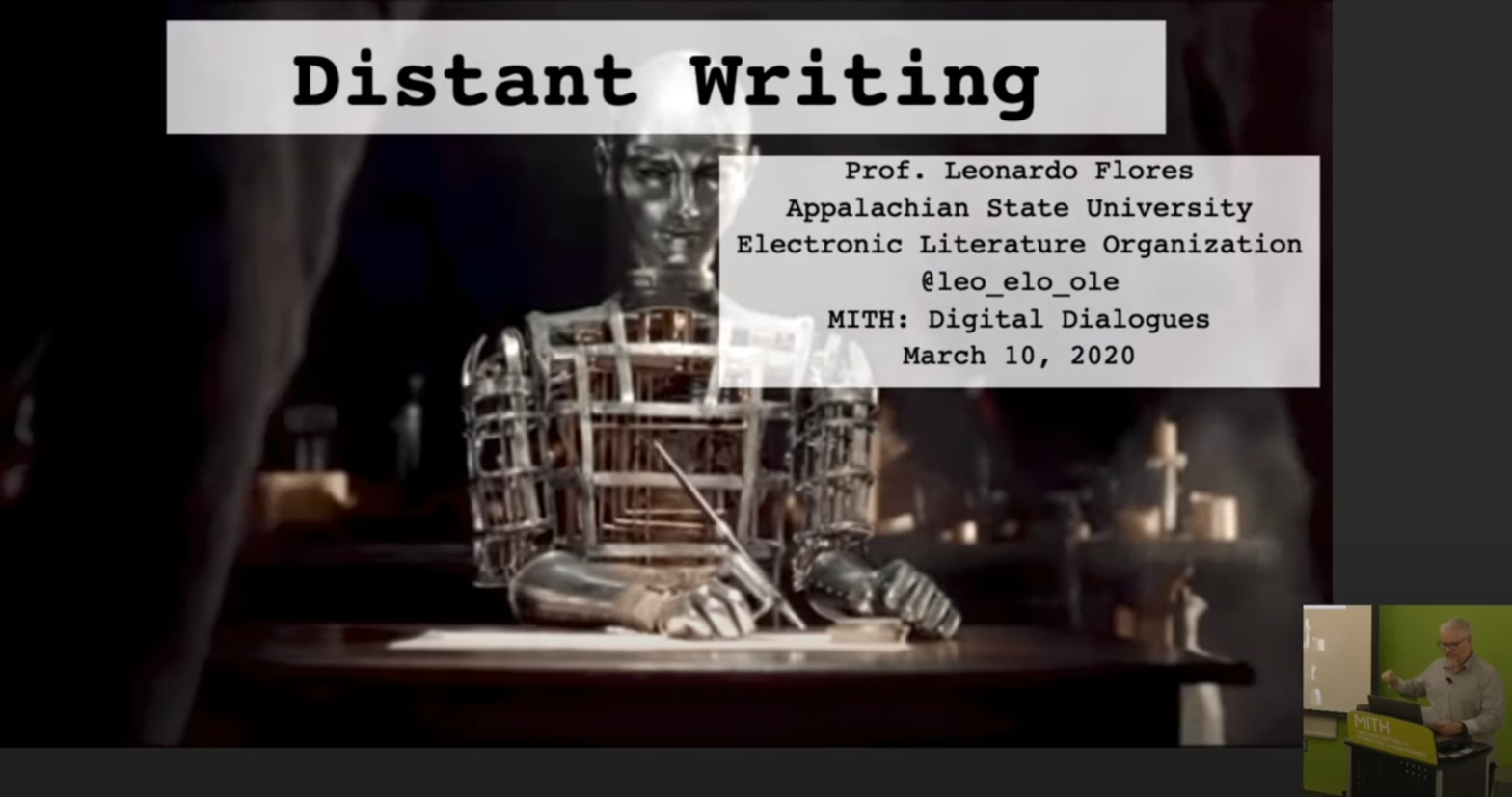This semester, right before COVID-19 sent the world into quarantine, I was honored to give two invited lectures on electronic literature, one at the US Naval Academy titled “Turning the Page: Latinx Born-Digital Literature” and another at U of Maryland titled “Distant Writing.” The lectures have been video recorded and well produced, so I have embedded them here, along with their abstracts.
Turning the Page: Latinx Born-Digital Literature
Forum for Latin American Studies, USNA – February 25, 2020
Why do we read and write on digital devices much the same way as we do in paper? Even though people have had access to mainframe computers since the 1950s, word processing since the 70s, personal computers and video games since the 80s, the Web since the 90s, mobile and touchscreen devices since the 2000s, and social media networks for over a decade, we still use these devices for writing in the same modalities developed for the printed page. Much writing in digital media still follows the same rules and conventions developed for when we place ink on paper: carefully chosen static text organized into lines, verses, paragraphs, stanzas, usually on white virtual paper. This talk explores the work of Latinx writers who have stepped away from the limits and conventions of the virtual page to explore the potential of digital media with works of electronic literature that incorporate images, video, sound, animation, interactivity, computation, time, and networking.
Distant Writing
MITH Digital Dialogues, UMD – March 10, 2020
How does a poet end up thinking in terms of algorithms, programming languages, and datasets? This talk explores the work of writers of electronic literature who, instead of writing sequences of words directly, create a computer program or modify an existing one to generate their intended texts. The practice of creating and repurposing “engines” encourage the development of born-digital poetic forms, such as Nick Montfort’s poem, “Taroko Gorge” which has been remixed hundreds of times since its publication in early 2009. In this talk I will provide a brief history of computational literature and related genres, discuss key characteristics and practices, analyze tools and strategies used for its creation, and identify communities that practice it. The goal of this exploration is to formulate a poetics of distant writing with attention given to how this practice is shaping public tastes and literary aesthetics.
Huge thanks to the good folks at the USNA Forum on Latin American Studies and the Maryland Institute for Technology in the Humanities for the invitations!
